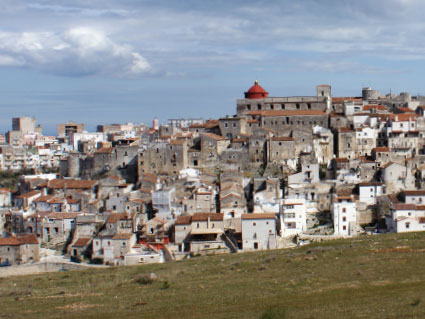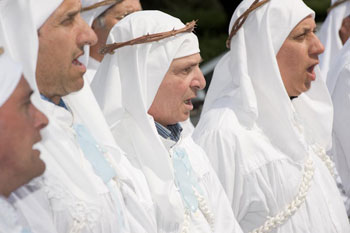





Holy Week in Vico del Gargano (Foggia) is a period of intense emotions that engage the whole population, particularly through the five Confraternities of the town, which play an indispensable role in preserving popular traditions linked to the Passion of Christ.
In such a unique, genuine context, the performance of chants takes on a leading role as a musical accompaniment to the events of the week, and the members of the confraternities all have a duty to take part in the rite with their own voices. The rituals typical of the ceremonies linked to the Passion culminate in a fervent, joyful explosion of vocality.
The ethno-musical research carried out on the survival of liturgical and para-liturgical music from the oral tradition in popular religious rites has demonstrated the existence of a wide range of monodic and polivocal chants, in both Latin and Italian, performed mainly in the lay confraternities. This makes Vico especially interesting, and sets it apart from other towns and villages in the Gargano area, in which chants of this kind are dying out, or becoming increasingly rare.
The survival here of such ancient characteristics has brought a number of academics and enthusiasts of popular traditions to Vico del Gargano over the years. The “Canti della Passione” (Chants of the Passion of Christ) from Vico del Gargano were even recorded on a disc released on the market in 2007, and have been the object of studies and publications by academics such as Salvatore Villani and Giovanna Marini. In her book, Italy's greatest folk singer speaks with enthusiasm of “the superb polivocal chant of the Miserere”: “ once the procession sets out, the first group intones the Miserere, then the second.... they all venture forth with their booming, strong, masculine voices: the effect is overwhelming. We all begin to weep, the beat is just too strong, the emotion too intense to bear. As I break into sobs, I dial the number of Patrizia Bovi so she too can hear just how extraordinary this Miserere is here in Vico”.